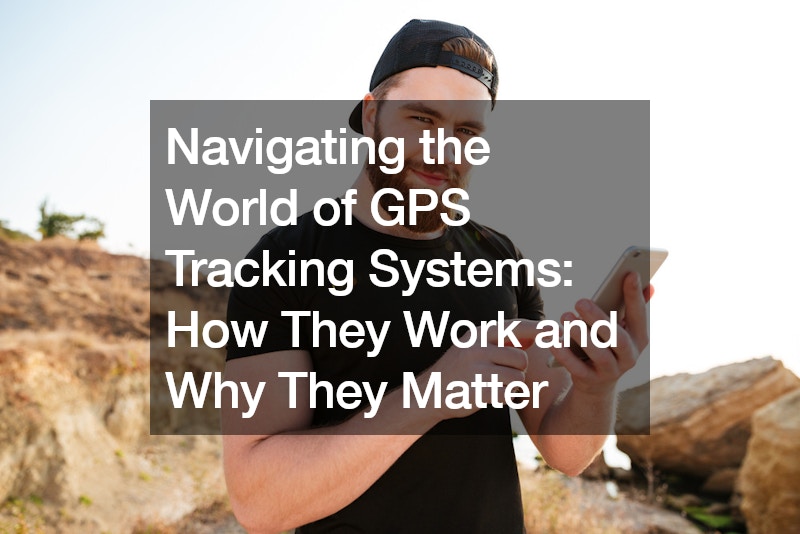
In a world driven by technology, GPS (Global Positioning System) tracking systems have become integral tools for various applications, ranging from fleet management to personal safety. Understanding how these systems work and their significance can shed light on the transformative impact they have on navigation, security, and beyond.
The Foundation: Global Positioning System (GPS)
At its core, GPS is a global radio navigation system comprising a network of satellites, known as the Global Navigation Satellite System (GNSS). Originally developed by the United States Defense Department for military use, GPS technology has since expanded its reach to civilian applications worldwide. Despite its widespread use, civilian access to GPS is regulated and reviewed by the Department of Defense.
Working Mechanism of GPS Tracking Systems
A GPS tracking system functions as a location device, providing real-time or historical geographical information using satellite data. These systems can be integrated into various objects such as vehicles, smartphones, or even wearable devices. To grasp their operation, it’s essential to explore the intricate process behind GPS tracking.
Satellite Signals and Receivers
GPS tracking devices receive signals from satellites orbiting the Earth. The devices are equipped with a designated receiver that processes these signals. This receiver computes the location, time, and velocity of the tracked subject. Some advanced devices can even provide 3D views by utilizing signals from four GPS satellites simultaneously.
Trilateration: The Mathematical Principle
The fundamental principle guiding GPS is trilateration. This mathematical concept involves calculating the location of a point in space by determining its distance from at least three known points. In the context of GPS, these known points are the satellites above a specific location on Earth. By precisely measuring the time it takes for signals to travel from the satellites to the receiver, the GPS tracking system can pinpoint the location of the tracked object.
The Role of GPS Satellites and Tracking Stations
Currently, there are 27 GPS satellites orbiting the Earth, with 24 operational and three serving as standby satellites. These satellites orbit the Earth approximately every 12 hours, transmitting microwave carrier signals. Tracking stations located globally play a crucial role in controlling GPS systems. These stations track signals from satellites, ensuring the accuracy of the data provided by GPS tracking devices.
GPS Tracking Devices: Active vs. Passive
GPS tracking devices come in two primary types: active and passive.
Active Trackers (Data Pushers)
Active GPS trackers, also known as data pushers, transmit location data in real-time. These devices are ideal for applications that require constant monitoring, such as fleet management, anti-theft systems, or real-time tracking of individuals. They utilize internet or cell phone networks to relay data, providing up-to-the-minute information on the location of the tracked subject.
Passive Trackers (Data Loggers)
Passive GPS trackers, also referred to as data loggers, store position data internally. They capture and store information at specific intervals or based on events. This data is not transmitted in real-time but must be physically retrieved for analysis. Data loggers are valuable for applications where real-time tracking is not a priority, such as research projects or retrospective analysis.
Applications and Significance
The applications of GPS tracking systems extend far beyond navigation. Here are some key areas where these systems play a crucial role:
Fleet Management
Businesses that rely on a fleet of vehicles can optimize operations through GPS tracking systems. These systems enable real-time monitoring of vehicle locations, ensuring efficient route planning, fuel management, and timely deliveries.
Personal Safety
For individuals, especially those in high-risk professions, GPS tracking systems provide an added layer of safety. Wearable devices equipped with GPS technology can transmit real-time location data, allowing authorities or loved ones to respond swiftly in emergencies.
Anti-Theft Measures
In the automotive industry, GPS tracking systems serve as powerful anti-theft tools. In the unfortunate event of vehicle theft, these systems help locate and recover stolen vehicles quickly.
Outdoor Adventures
GPS trackers are invaluable companions for outdoor enthusiasts. Whether hiking, biking, or camping, individuals can use these devices for accurate navigation, tracking routes, and ensuring their safety in remote areas.
Conclusion
GPS tracking systems have revolutionized the way we navigate, manage resources, and ensure personal and vehicular security. Understanding the fundamental principles behind these systems and their diverse applications underscores their significance in today’s interconnected world. Whether improving business efficiency, enhancing personal safety, or contributing to scientific research, GPS tracking systems continue to shape our lives in profound ways. As technology advances, the role and impact of these systems are only set to grow, further influencing the way we perceive and interact with the world around us.
.

